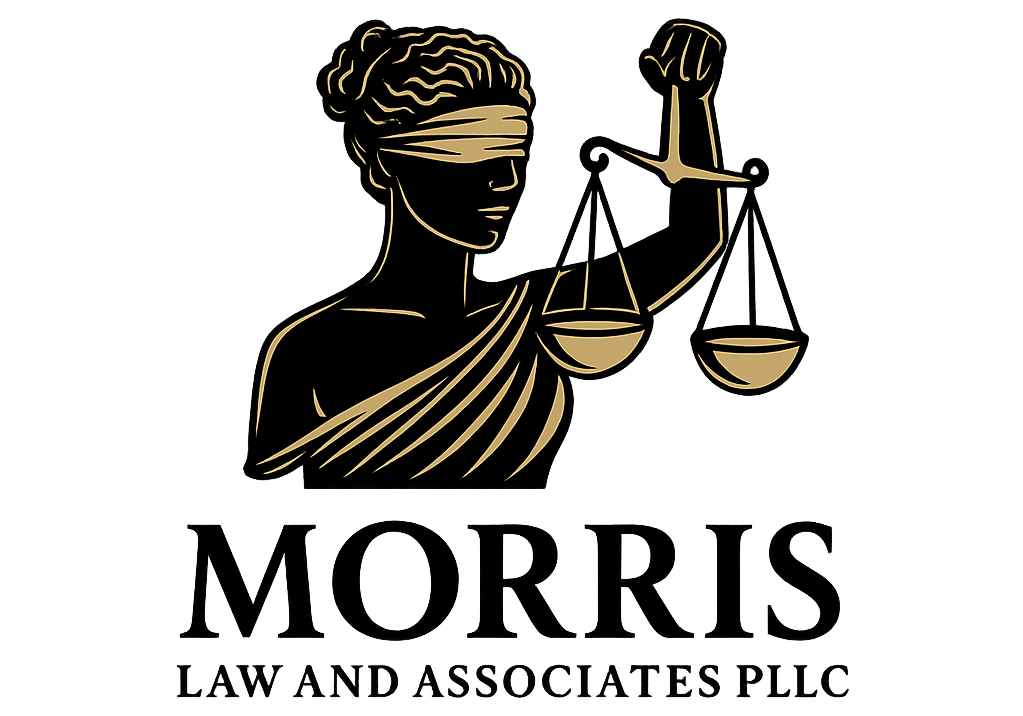Landlord-Tenant Disputes in Texas and Common Issues With Resolution Strategies
Navigating the complex relationship between landlords and tenants in Texas requires understanding both parties’ rights and responsibilities under state law. As property values continue to rise across Houston and surrounding areas, landlord-tenant disputes have become increasingly common. At Morris Law and Associates PLLC, we regularly assist clients with resolving these conflicts effectively while protecting their legal interests.

The Texas Property Code and Rental Relationships
Texas landlord-tenant law is primarily governed by Chapter 92 of the Texas Property Code, which establishes the legal framework for residential tenancies. This legislation outlines specific rights and obligations for both parties, creating a foundation for resolving disputes when they arise.
However, many landlords and tenants operate without a complete understanding of these legal provisions, often leading to conflicts that could have been prevented with proper knowledge. Let’s examine the most common disputes we encounter in our landlord-tenant practice and effective strategies for addressing them.
Security Deposit Disputes
Security deposit conflicts represent one of the most frequent sources of disagreement between landlords and tenants in Texas.
Legal Requirements for Landlords
Under Texas law, landlords must return a tenant’s security deposit—or provide an itemized list of deductions—within 30 days after the tenant surrenders the property. Failure to comply with this requirement can result in the landlord being liable for three times the wrongfully withheld amount, plus attorney’s fees.
Common Points of Contention
- Normal wear and tear versus damage: Texas law distinguishes between normal deterioration that occurs with reasonable use (wear and tear) and damage caused by negligence or abuse. This distinction frequently leads to disputes about deductions.
- Proper documentation: Without detailed move-in and move-out inspections, disagreements about the property’s condition before and after tenancy become difficult to resolve.
- Improper withholding: Some landlords incorrectly withhold deposits for unauthorized reasons, such as unpaid rent (which may be justified) or routine cleaning (which generally isn’t).
Resolution Strategies
Documenting the property’s condition thoroughly at both move-in and move-out through dated photographs and written reports provides essential evidence for both parties. When disputes arise, having an attorney review the deductions can help determine if they comply with Texas law.
In many cases, our firm has successfully recovered improperly withheld deposits for tenants while also protecting landlords who have made legitimate deductions in accordance with the law.
Repair and Habitability Issues
Texas law requires landlords to maintain properties in a condition that is safe and suitable for living. This “warranty of habitability” often becomes a point of contention when maintenance issues arise.
Tenant Rights to Repairs
For a tenant to legally demand repairs, several conditions must be met:
- The tenant must be current on rent
- The issue must materially affect physical health or safety
- Proper written notice must be provided to the landlord
- The landlord must have had reasonable time to make repairs
Landlord Responsibilities
Landlords must respond to qualifying repair requests within a reasonable timeframe—generally seven days unless circumstances warrant faster action. Failure to address legitimate repair issues can lead to various tenant remedies, including:
- Repair and deduct
- Termination of the lease
- Judicial remedies including court-ordered repairs
Prevention and Resolution
Clear lease provisions detailing maintenance responsibilities help prevent disputes. When conflicts do arise, documented communication becomes crucial. Our real estate litigation services often include evaluating repair disputes to determine if landlords have met their legal obligations or if tenants have properly followed procedures for requesting repairs.
Eviction Proceedings
Eviction represents the most serious type of landlord-tenant dispute and must follow strict legal procedures to be valid in Texas.
Proper Grounds for Eviction
Common legal grounds for eviction include:
- Nonpayment of rent
- Lease violations
- Holding over after lease expiration
- Illegal activities on the premises
Texas Eviction Process
The Texas eviction process follows specific steps:
- Proper notice to vacate (typically 3 days, though lease terms may specify different periods)
- Filing an eviction suit if the tenant doesn’t leave
- Court hearing (usually scheduled within 10-21 days)
- Judgment and potential appeal
- Writ of possession if the tenant still doesn’t vacate
Legal Considerations
Attempting “self-help” evictions—changing locks, removing belongings, shutting off utilities—is illegal in Texas and can result in liability for the landlord. Similarly, retaliatory evictions (evicting a tenant for exercising legal rights) are prohibited.
Many landlords make procedural errors during eviction that invalidate the process or delay resolution. Our firm provides landlord representation to ensure evictions proceed legally, while also defending tenants against improper eviction attempts.
Lease Interpretation Disputes
Ambiguous lease terms frequently lead to disputes between landlords and tenants. Common areas of confusion include:
Responsibility for Utilities and Services
Leases should clearly specify which utilities and services the landlord provides and which are the tenant’s responsibility. Ambiguity in these provisions can lead to disputes about payment obligations.
Pet Policies
Conflicts often arise regarding:
- Allowed types and sizes of pets
- Pet deposits versus pet fees
- Accommodation of service and emotional support animals
Maintenance Responsibilities
Confusion about who handles specific maintenance tasks—from lawn care to appliance repairs—frequently generates disputes.
Lease Renewal and Termination
Terms for proper notice, automatic renewal, and early termination rights must be clearly outlined to avoid end-of-lease conflicts.
Resolution Approaches
Well-drafted leases prevent many interpretation disputes. When ambiguities exist, courts generally interpret unclear provisions against the party who drafted the document—typically the landlord. Our firm assists in contract review services to ensure lease terms are clear and comprehensive.
Rental Increases and Changes
Disputes about rental increases often occur when landlords fail to follow proper procedures or tenants misunderstand their rights.
Legal Requirements
In Texas, landlords generally may increase rent upon lease renewal, provided:
- The increase doesn’t violate fair housing laws
- Proper notice is given according to lease terms
- The increase doesn’t breach specific lease provisions
Month-to-month tenancies typically require at least 30 days’ notice for rent increases.
Tenant Rights
While Texas doesn’t have rent control laws, tenants maintain rights regarding:
- Receiving proper notice of increases
- Protection against discriminatory increases
- Opportunity to accept the new terms or vacate
Navigating Changes
Our practice helps landlords implement rent changes legally while also advising tenants about their options when facing increases. In many cases, mediation services provide an effective forum for negotiating mutually acceptable terms.
Privacy and Access Issues
Balancing a landlord’s right to access the property with a tenant’s right to privacy creates another common source of conflict.
Landlord Entry Rights
Texas law requires landlords to provide reasonable notice before entering a rental property except in emergencies. While the statute doesn’t specify exactly what constitutes “reasonable notice,” 24 hours is generally considered appropriate.
Tenant Privacy Rights
Tenants have a right to the quiet enjoyment of their rental property without undue landlord interference. Excessive or improperly noticed entries may constitute harassment.
Finding Balance
Clear lease provisions specifying notice requirements and entry protocols help prevent access disputes. When conflicts arise, documented communication about entry requests and responses often helps resolve disagreements without escalation.
The Role of Alternative Dispute Resolution
Many landlord-tenant disputes can be resolved more efficiently through alternative dispute resolution methods rather than traditional litigation.
Mediation Benefits
Mediation offers several advantages for landlord-tenant disputes:
- More cost-effective than court proceedings
- Faster resolution timeframes
- Preservation of the landlord-tenant relationship
- Customized solutions that address both parties’ interests
When Litigation Becomes Necessary
While many disputes can be resolved through negotiation or mediation, some situations require court intervention, particularly when:
- One party refuses to participate in good faith negotiations
- The dispute involves complex legal questions
- Emergency remedies are needed
Our litigation services provide representation in court when necessary, while our mediation practice offers alternative resolution options when appropriate.
Preventive Strategies for Landlords and Tenants
The best approach to landlord-tenant disputes is preventing them before they arise.
For Landlords
- Maintain comprehensive, legally compliant lease agreements
- Document all property conditions and communications
- Respond promptly to repair requests
- Follow proper procedures for notices and entry
- Stay informed about changes to Texas property laws
For Tenants
- Read and understand lease terms before signing
- Document property conditions at move-in
- Submit maintenance requests in writing
- Keep records of all communications with the landlord
- Know your rights under Texas property law
Professional Legal Guidance Makes the Difference
Navigating landlord-tenant issues requires understanding complex legal requirements while balancing practical considerations. Whether you’re a property owner seeking to protect your investment or a tenant defending your rights, professional legal guidance provides crucial support.
At Morris Law and Associates PLLC, we bring over a decade of experience in Texas real estate law to help clients resolve landlord-tenant matters efficiently and effectively. Our approach focuses on practical solutions while ensuring our clients’ rights are fully protected.
Don’t let landlord-tenant disputes escalate unnecessarily. Contact our office today to schedule a consultation about your specific situation. Our experienced team will help you understand your rights and options while developing a strategy tailored to your unique circumstances.





